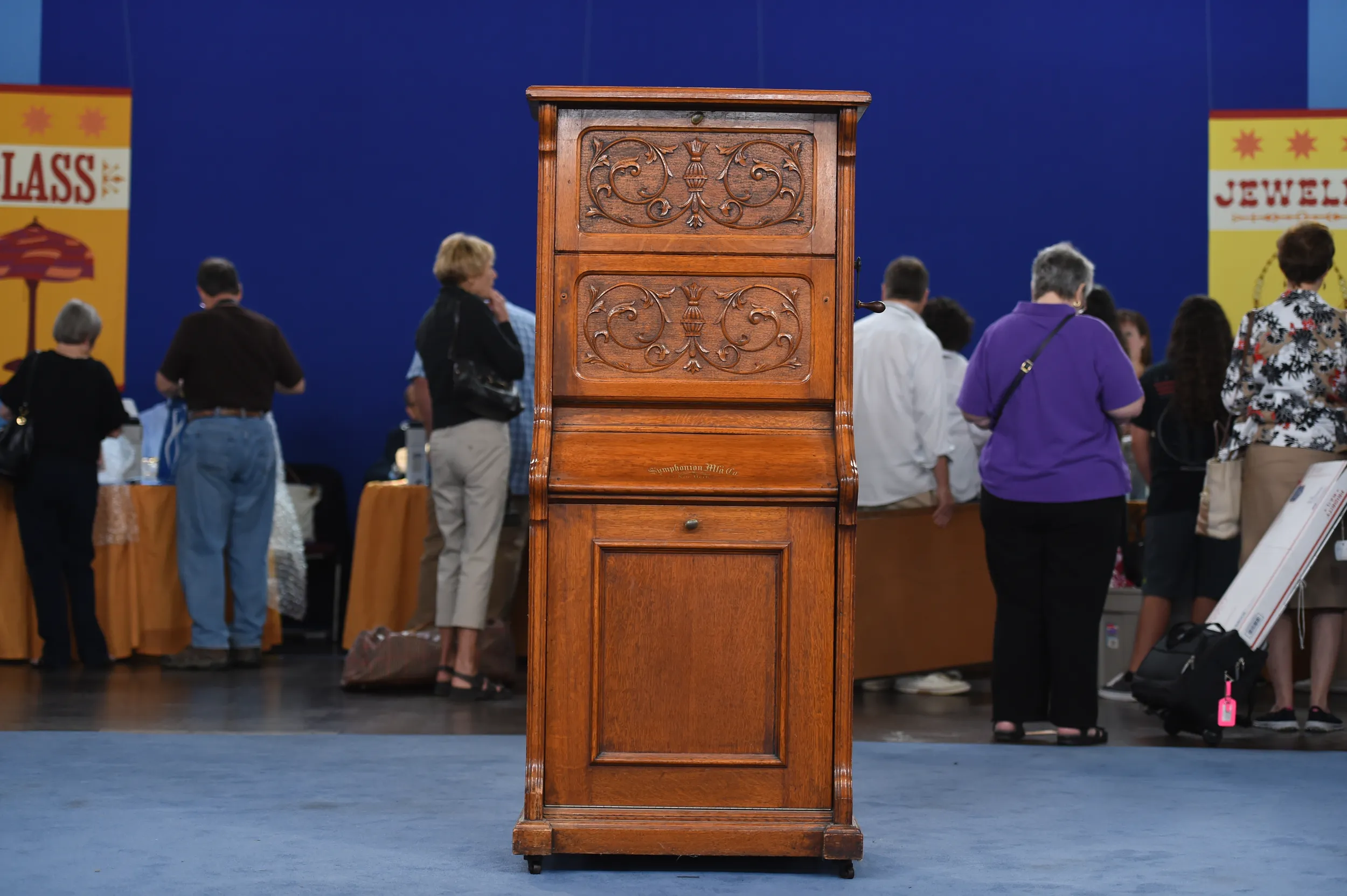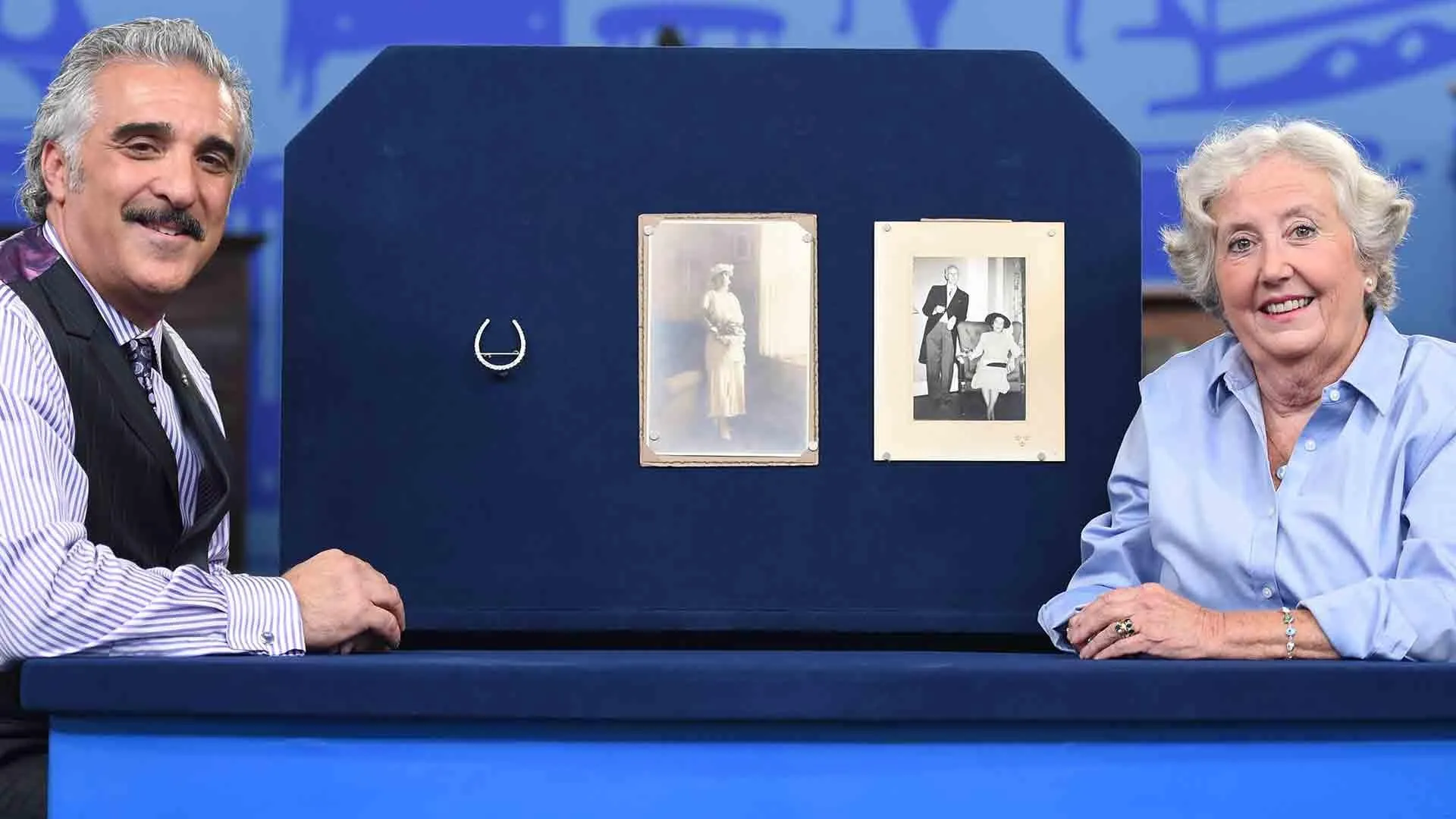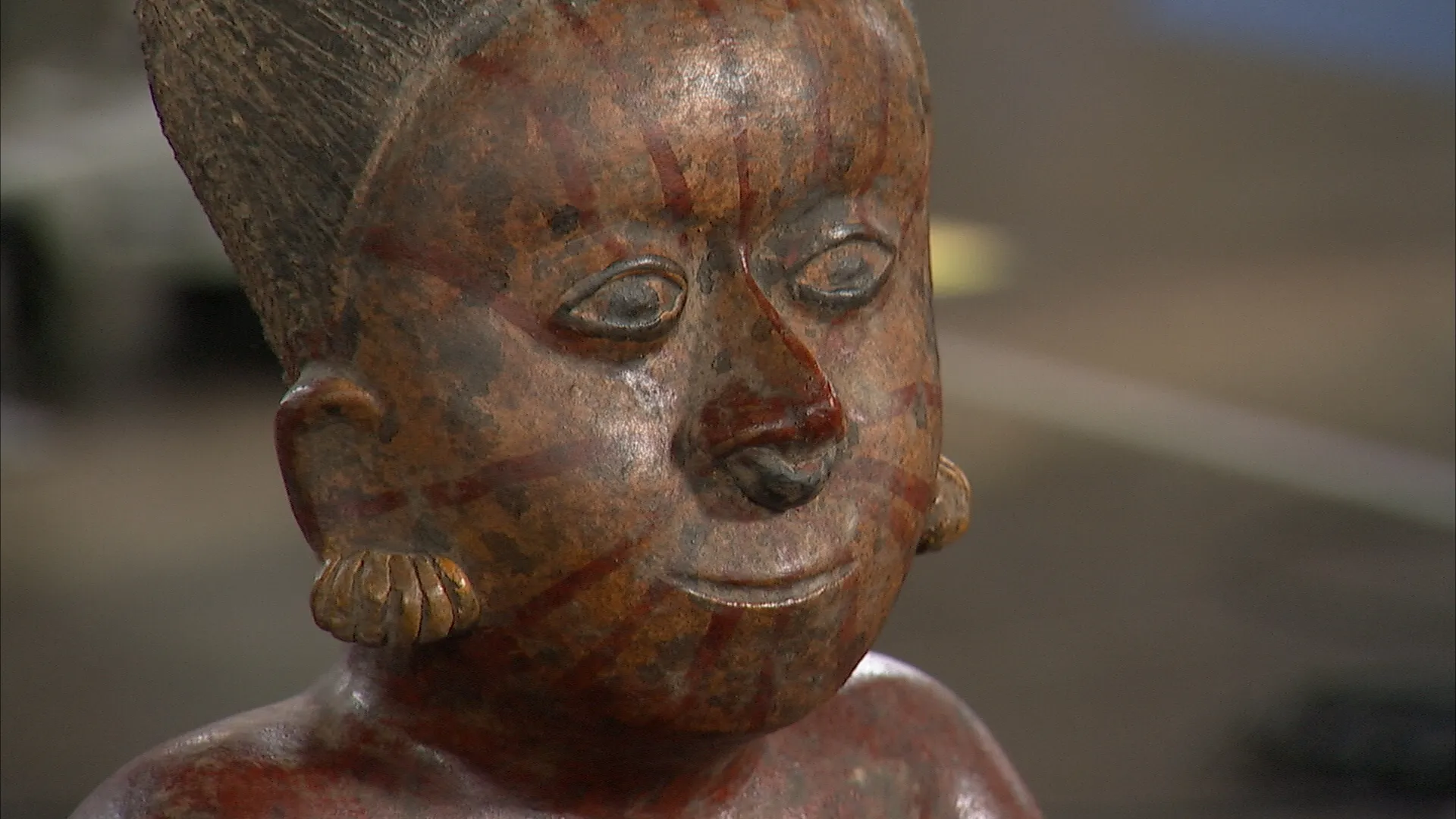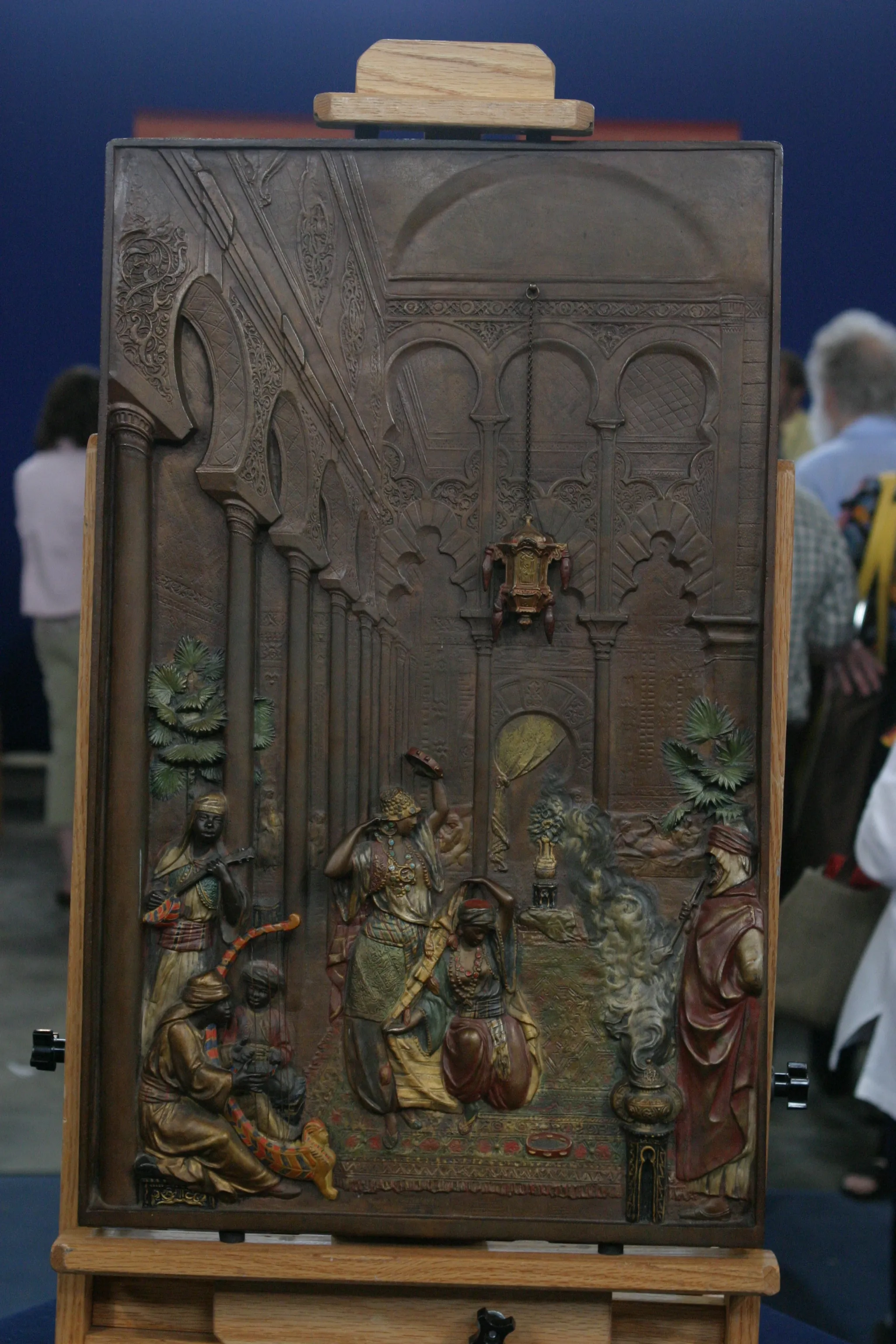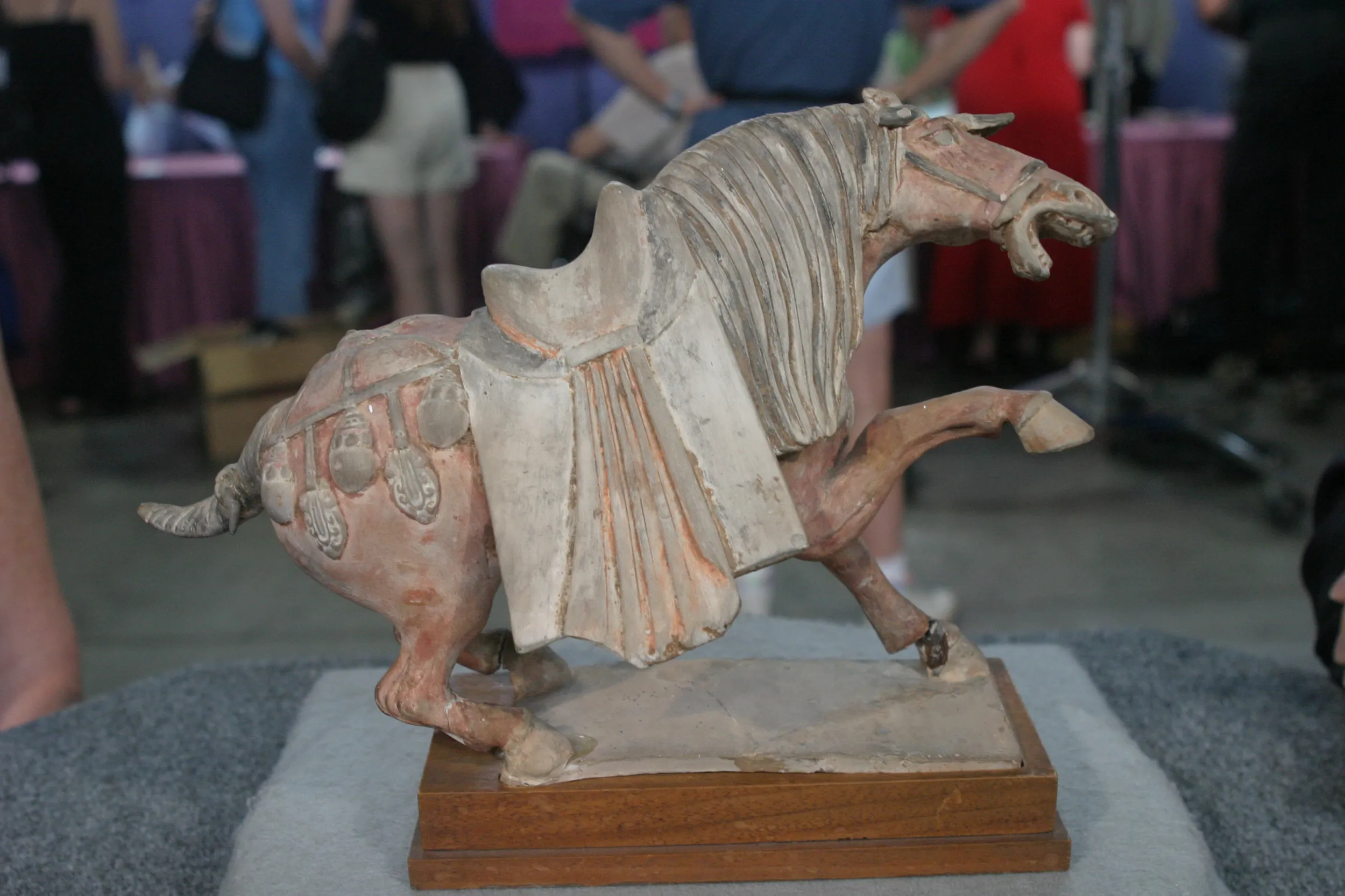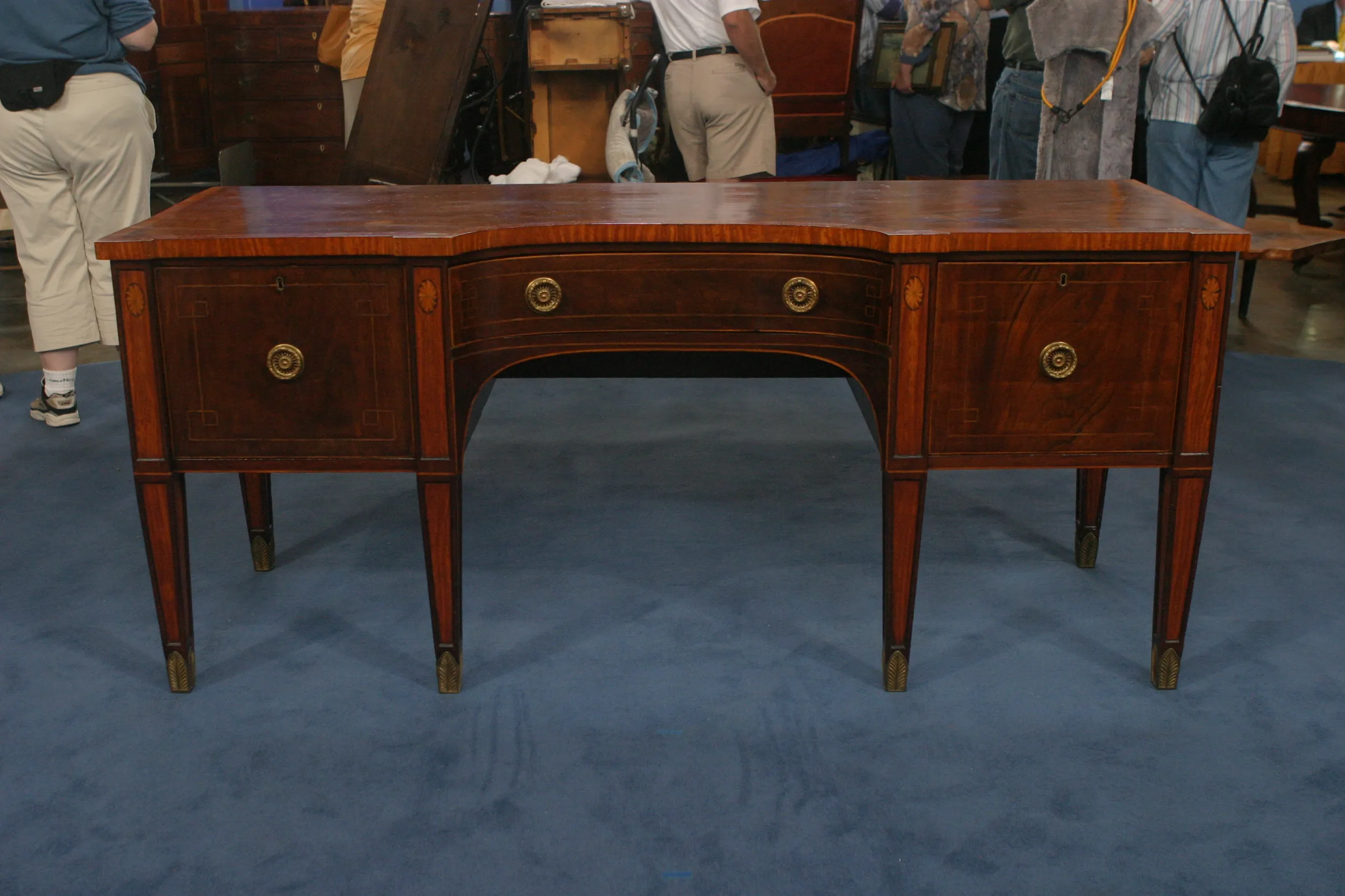GUEST: It was in my grandparents' apartment in Hinton, West Virginia. And I'm not sure where they got it, but when they passed away, it came to my parents, and then when they passed away, it came to us. We think it's a coin-operated device, so we think it might have been in some sort of a retail establishment somewhere. But other than that, I don't have much history about it.
APPRAISER: Okay, well, for our viewers who are looking at what appears to just be an ordinary piece of case furniture, it really isn't. Inside of it is disguising a... A fine disk-playing music box, and we can see that it was manufactured by the Symphonion Manufacturing Company in New York. Now, Symphonion's parent company was in Germany, and they were one of the innovators of producing disk music boxes. When it says "imperial," it means that's their American branch.
GUEST: Okay.
APPRAISER: Which operated from about 1897 to 1902, so it really gives us a narrow timeframe from which this is produced. It plays a disk, which reverberates the music from the disk onto the comb behind it, and that's what gives us the tune. And as you mentioned, it does have a coin slot, which is absolutely correct, indicates a commercial establishment. I would assume that it plays a nickel. American machines would typically play a nickel. Another interesting note is this tag here, and you can see that there's a lot of patents that they applied for and were granted. And that really bespeaks the competitiveness of this industry. While they were one of the leaders, they had to work very hard and diligently to preserve their market share. I think one of the important aspects of this machine is its condition.
GUEST: Do you think this is the original finish?
APPRAISER: Without a doubt. The other thing is, this really is a very scarce machine.
GUEST: Really?
APPRAISER: I could only find one comparable to this machine that has sold, and it was a variation and not nearly as nice. So in terms of value, at auction, the market is soft for these, but I think those filling in collections would be pursuing it rather competitively.
GUEST: That's terrific.
APPRAISER: At auction, I'd put it at $3,000 to $5,000.
GUEST: Okay, that's terrific. Thank you, that's good to know.
APPRAISER: And it's a type of piece that might do better just because we don't have any comparable sales.
GUEST: Well, thank you, thanks very much.
APPRAISER: Shall we hear it play?
GUEST: Sure. (gentle chiming)

